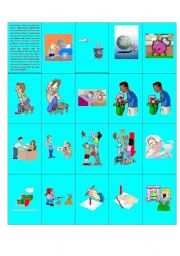
|
Phrasal Verb Memory Game
This game will help you to teach your students phrasal verbs in a way that they may never forget. The instructions are simple. Divide the class in 2 or 3 groups. Shuffle all the cards (except the ones that are on page three, that have the picture and the phrase, since these are for the teacher) and put them all face down. Each group will take turns...
Level: intermediate
Age: 7-17
Type: flash-card
Downloads: 11
|
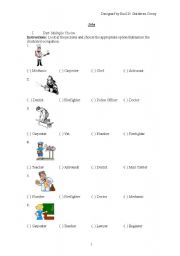
|
Jobs Test
This is the second test I�ve ever created, and I think it�s 10 times better than the first one. This test is very complete. You will find a multiple choice, 3 different types of short answer, matching and production. I hope you like it.
Level: elementary
Age: 10-17
Type: worksheet
Downloads: 5
|
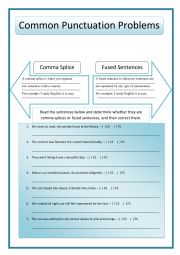
|
Comma Splice and Fused Sentence
This file will give the explanation for both a fused sentence and a comma splice, and it will give a practice.
Level: intermediate
Age: 9-100
Type:
Downloads: 5
|
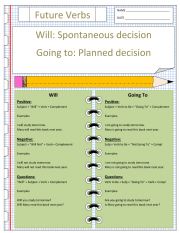
|
Verbs Future Simple - Will and Going To
This presentation is intended to be used with the Powerpoint with the same name, although it can be used alone. It shows the difference between "Will" and "Going To" for verbs, then it shows how to create positive and negative sentences using both, and then questions. After that, there is an exercise that can be completed.
Level: intermediate
Age: 7-100
Type:
Downloads: 16
|
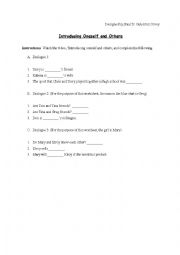
|
Introducing Oneself and Others
This worksheet is a listening exercise designed to be used with a video that can be found here: https://www.youtube.com/watch?v=5Kzhn99jOIY
It�s a small worksheet, but I think it�s effective.
Level: elementary
Age: 9-100
Type: worksheet
Downloads: 5
|
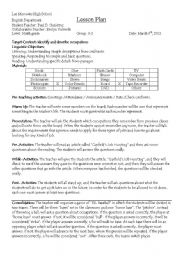
|
ESL Baseball Game
Ok, this is actually a lesson plan. However, in the part that says consolidation, there is a game that I created. I really like it, so I hope you enjoy it too. The worksheet about Garfield�s job hunting can be found here on ESL printables (that�s where I got it) and the memory game also. The ESL Baseball game can be adapted for any topic, so I hope...
Level: intermediate
Age: 10-17
Type: activity-card
Downloads: 7
|
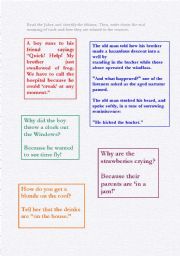
|
Jokes Containing Idioms
Here is a worksheet which contains some jokes with idioms. There are some other jokes for your entertainment, but the most important ones are the ones with the idioms.
Level: intermediate
Age: 11-17
Type: worksheet
Downloads: 13
|
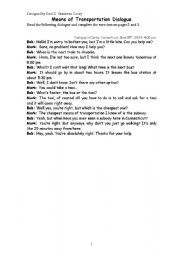
|
Means of Transportation Dialogue.
This is a good activity if you want to teach means of transportation. In this activity you can find a dialogue about different means of transportation, a questionnare about the dialogue, some space where the students should write a paragraph, and a chart that the students must complete.
Level: intermediate
Age: 9-17
Type: worksheet
Downloads: 24
|
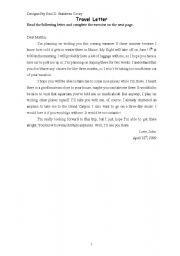
|
Travel Letter
This is a good activity if you want to teach travel plans. In this worksheet you can find a letter about a person who wants to visit the United States, so he mentions what he wants to do when he�s there. After that you can find a fill in the blanks exercise based on the letter.
Level: intermediate
Age: 10-17
Type: worksheet
Downloads: 2
|
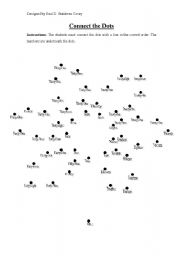
|
Connect the Dots
Here is an activity you can use if you want to teach numbers. It�s excellent for children, although it also works for teenagers. Unlike other connect-the-dots activities, though, this one has all the numbers in the writen form. If you download this activity, please give me some feedback. Tell me what you like, what you don�t like. I want to improve...
Level: elementary
Age: 6-14
Type: activity-card
Downloads: 15
|
|
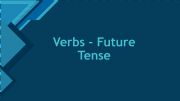
Verbs Future Simple - Will and Going To
This presentation is intended to be used with the worksheet with the same name, although it can be used alone. It explains the difference between "Will" and "Going To" for verbs, then it shows how to create positive and negative sentences using both, and then questions.
Level: intermediate
Age: 7-100
Downloads: 14
|
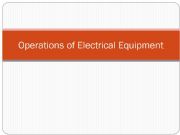
Operation of Electronic Equipment
This presentation is so that you can teach your students about operating electric equipment. First, you teach them the structures that they need to know. Then, you teach them certain vocabulary words and phrases. Finally, you use the vocabulary in context so that they can learn how to use them.
Level: intermediate
Age: 9-100
Downloads: 25
|

Present Continuous - Gerunds
This Powerpoint explains the difference between Present Simple and Present Continuous, and then shows how to create sentences in Present Continuous, both positive and negative, and how to create questions. For each type, there is also a practice.
Level: elementary
Age: 7-100
Downloads: 12
|
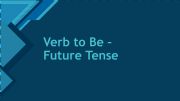
Will Be vs Going to Be
So, I have seen a lot of worksheets with Will vs Going To, but none that were about the Verb to Be. When teaching the verb to be, it is important to teach present, past, and future, so here is a powerpoint presentation that will help you teach the verb to be in future tense.
Level: elementary
Age: 7-100
Downloads: 13
|
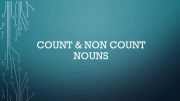
Count and Non-Count Nouns
This presentation will explain the difference between count and non-count nouns, and provide examples. Then, it will explain how you can count the non-count nouns. It also explains the difference between how much and how many, and then explains the use of a lot. At the end, there is a practice in wh...
Level: intermediate
Age: 7-100
Downloads: 12
|
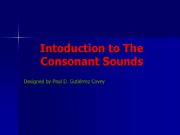
Introduction to the Consanant Sounds
This ppt is good if you want to teach pronunciation. Although it does not include the actual pronunciation, it will prepare your students to learn how to pronounce any English consonant.
Level: intermediate
Age: 12-17
Downloads: 4
|
|

Routines
This exercise is about routines. There is a Multiple Choice part where it covers the routine of a boy named Daniel, and then there�s another multiple choice about the frequency adverbs that are used when describing routines.
Level: elementary
Age: 11-100
|

"Wh" Questions Practice
This is to practice wh questions. There will be some questions with who, where, how, and how old. The student must choose the answer that fits for each question.
Level: elementary
Age: 7-100
|
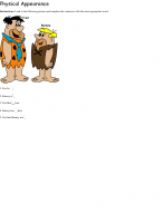
Physical Appearance (Fred and Barney)
This is not for comparatives and superlatives. This is for students who are just starting to learn about physical appearance, but haven�t learned comparatives and superlatives yet. So they will look at the picture and complete sentences that describe Fred and Barney.
Level: elementary
Age: 7-100
|

Phrasal Verbs
This exercise will help you to test your students� knowledge on phrasal verbs. The student must look at the pictures and read the sentence in order to decide which phrasal verb is appropriate. Then they must decide whether it is separable or non-separable. At the end there is a wordsearch in which t...
Level: intermediate
Age: 8-100
|

The Ant and the Grasshopper (Past Tense
In this exercise, students must choose the correct form of the verb in past tense, and then choose the pronunciation of the past tense suffix.
Level: elementary
Age: 6-100
|

Sports Hangman
Students have to guess the sport that is being described.
Level: elementary
Age: 5-100
|

Trying to delete, since it got messed up...
Trying to delete, but so far can�t find a way to do so.
Level: elementary
Age: 7-100
|

The McDonalds Company
This is a crossword puzzle that can test your students� knowledge about company vocabulary. It only has one part, but that�s all you will need, since it has the most important vocabulary words.
Level: elementary
Age: 14-100
|
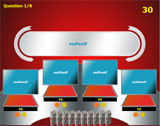
Simple Present Million Pound Drop
Students must choose the option that best completes the sentence or question.
Level: elementary
Age: 6-100
|

Jobs Hangman
For each job, there is a description.
Level: elementary
Age: 6-100
|
|